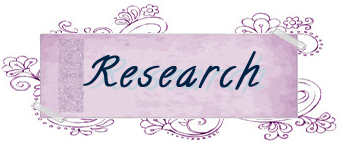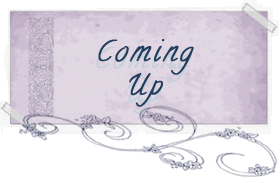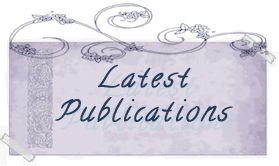
Books
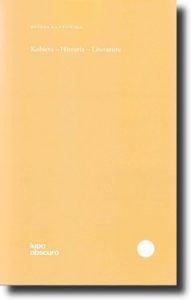
“Kobieta historia literatura”
(Woman-Literature-History)
More info

“The More I know, The Less I Understand. Young Researchers Essays on Witnessing Auschwitz”
More info
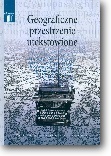
“Geograficzne Przestrzenie Utekstowione”
(Textualizing Geographical Space)
More info
Articles
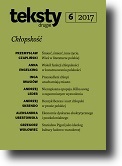
„Kultura chłopska w optyce prasy społeczno kulturalnej lat 1944-48. „Warszawa” i dyskusje nad modelem kultury powojennej Polski”
(“Peasants’ Culture Through the Lens of Socio-Cultural Journals 1944-1948. „Warszawa” and Discussions on the Cultural Model of Postwar Poland”)
Teksty drugie
(In Polish)
Bożena Karwowska’s current research and writing centers primarily on Holocaust Studies, with an emphasis on the body and sexuality.
Her work in both Holocaust Studies and the literary representation of (i/emigrant) women in Slavic literatures focus on life writings and the nexus of linguistic usage vis-à-vis (meta-)cognition. Utilizing reader response and reception theories, she explores these areas of interest with a particular mindfulness toward issues of communication between groups with different “common memories”. As a Holocaust Studies specialist, she is especially interested in the application of feminist concepts and approaches and the significance of the spatial turn for Holocaust research; nonetheless, she continues to search out an appropriate language for Holocaust experiences.
In addition to teaching courses in Holocaust Studies and Polish literature, she co-founded with the State Museum of Auschwitz Birkenau a study abroad seminar, “Witnessing Auschwitz,” wherein students travel to Poland to conduct research under her joint supervision with faculty at the Museum’s Research Center.
She has worked to develop a novel form of pedagogy centering on the notion of students as ‘proxy-witnesses’ and teaching through research. This has led to the inter-cohort publication written by Witnessing Auschwitz students, “The More I Know, the Less I Understand”.
Funded Research
Transcultural History of the Holocaust (Memory-Based) Literature – New Models of
Holocaust Research and Education
Hampton Research Grant 2014 – 2016
The Hampton Research grant helped me develop a new model of Holocaust education in which students from various disciplines examine and rethink such matters as the differences between the positions of witness, educator and expert. Following CENS 303 courses, taught according to this new form of pedagogy, students can apply to take part in a group seminar in Poland, where they conduct research and return to host a conference in which to present their findings.
This grant also funded my research into the experiences of Holocaust survivors who emigrated to new homelands after the Holocaust. The phases of exile include dealing with memories of the past (happiness), and of the events that resulted in their displacement (trauma); Holocaust survivors/witnesses, however, rather had to deal concurrently with two processes related to memories of the past, both of which are recorded in their literary works. As survivors immigrated primarily to countries whose inhabitants were lacking, at least initially, the common (cultural) memory of the Holocaust, they were met with a limited understanding of their traumatic experiences (if not a simple disbelief) and the cultures of their countries of arrival influenced the ways in which they mediated their memories to their (perspective) readers.
Witnessing Auschwitz
![]() Arts Research Abroad – – Witnessing Auschwitz – International Advanced Research Group Study Program
Arts Research Abroad – – Witnessing Auschwitz – International Advanced Research Group Study Program
![]() Work Learn – undergraduate and graduate assistants for TLEF project
Work Learn – undergraduate and graduate assistants for TLEF project
![]() Holocaust Education Committee
Holocaust Education Committee
Undergraduate support for CENS 303A on line course
![]() Polish Consulate (visiting speaker and WA book support)
Polish Consulate (visiting speaker and WA book support)
![]()
Second Sex in Exile: Immigration in Post-War Prose by Polish Women Authors
![]() HSS Research Grant 2010 – 2011
HSS Research Grant 2010 – 2011
![]() Hampton Research Grant 2011-2013
Hampton Research Grant 2011-2013
Polish post-war literature offers a multigenerational picture of exilic experiences of women in different countries. As they began to deal with the atrocities of war, and, later, the division of the world along political lines throughout the 1980s, including the Solidarity movement, and martial law, up until Poland’s joining of the European Union in 2004, Polish women documented their exilic experiences in the literary form. Over the span of roughly half a century, they also witnessed and documented changes to the cultures of their new countries.
The aim of my study was to describe, analyze, and discuss gender-specific, exilic experiences of women in a theoretically informed and conceptually adequate way. Using feminist notions, I first focused on both the similarities and differences between the position of women in Poland and in countries of their arrival (England, USA, Canada and Argentina among others). The realities of these countries-of-arrival varied between cultures: from the rise of feminism in the Western sphere, to the patriarchal and (post)colonial view on “white” women in Central and South America. Over the years all of the cultures in question (Polish, North and South Americans, and Europeans) evolved, bringing changes to women’s situations, as well as challenges, resulting in confusion and misunderstanding, and, finally, complicating relations between various generations of exiles.
I also identified women-specific issues (changing and evolving), beginning with the question of women’s patriarchal roles. (That is, pertaining to issues of intercultural marriage, raising children in a new language, and culture, and passing on to them the cultural memories of their Polish (grand)parents). My study shed some light on differences between national and multiethnic cultures, with respect to the situations of women and their understandings of the world. It also contributed to a rising interest of researchers of Polish literature and culture in gender-specific representation of exilic experiences.
Sexuality – Body and Gender in Nazi Concentration Camps
![]() HSS Small Research Grant 2006 – 2007.
HSS Small Research Grant 2006 – 2007.
![]() Hampton Research Grant 2007 – 2009
Hampton Research Grant 2007 – 2009
One of the difficulties which the researcher encounters in dealing with Holocaust and camp literature is the problem of language. In general terms, the problem arises because both the perpetrators and the victims came, broadly speaking, from the same patriarchal culture, the language of which, (including in its literary form), reflected the patriarchal system of human relations in its assumptions, concepts, categories and obfuscations. Thus, in trying to understand human behavior in the camps, including sexuality and gender issues, it is necessary to make use of theoretical approaches whereby the conceptual apparatus is not implicated in patriarchal culture. In my work on the body in Nazi camps, I have successfully applied the notion of “the captive body,” used by black feminism in the studies of black slave cultures in North America and other identity-based feminist approaches, (including feminist studies of indigenous peoples in Canada and the USA). I have combined this feminist perspective with relevant concepts derived from the works of Michel Foucault and Giorgio Agamben (such as, for instance, biopolitics and “bare life”). These categories proved particularly valuable in allowing me to describe and analyze sex and gender related issues in the Nazi camps in a way that is sensitive, innovative and adequate.
